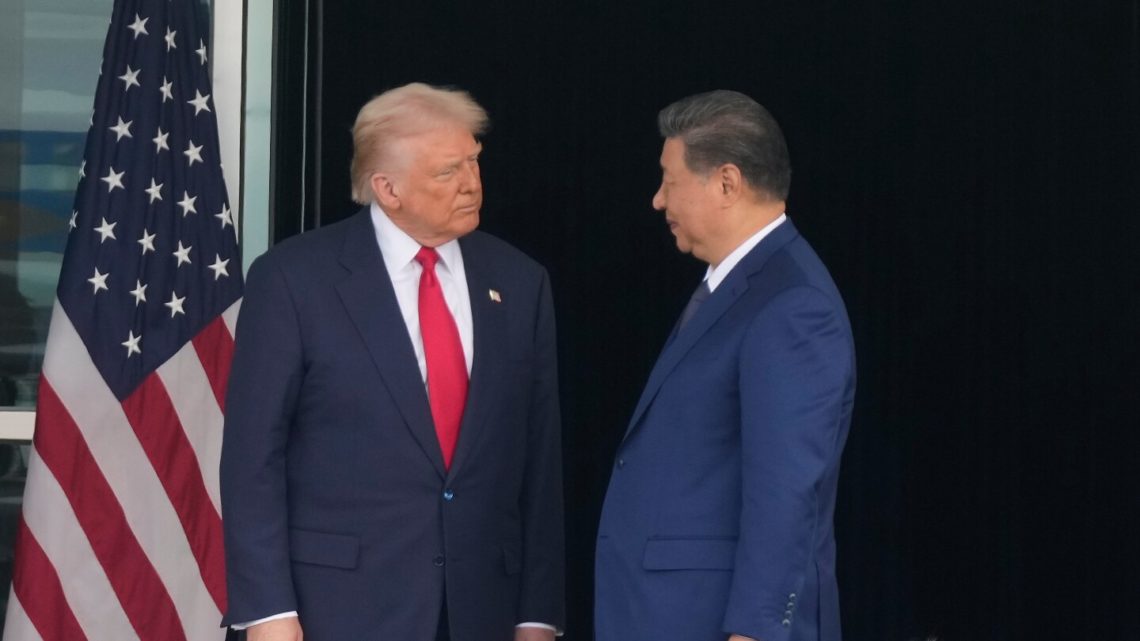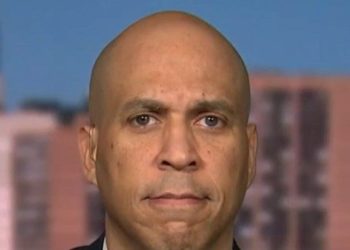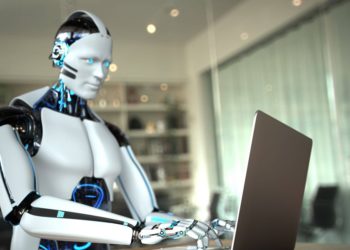BUSAN, South Korea (AP) — Three-digit tariffs are off the table, but import duties on each other are higher than in January.
will flow more smoothly, but China has put in place an export permitting regime that it can tighten or loosen as needed.
Port fees will go away, but only for one year.
And Beijing is again buying after it had abruptly cut off American farmers.
After months of posturing, arguing and threatening, U.S. President and Chinese leader have essentially turned back the clock. While between the two leaders was hailed by Trump as a “roaring success,” the agreement that came out of it may only serve to undo some of the damages Trump inflicted with his trade war upon his return to the White House.
“It is hard to see what major gains the U.S. has made in the bilateral relationship relative to where things stood before Trump took office,” said Eswar Prasad, an economist at Cornell University.
On the Senate floor, Minority Leader Chuck Schumer on Thursday denounced the deal out of South Korea as leaving the U.S. as “no better off.”
“If anything, things are worse: Prices have gone up and China has agreed to nothing of substance that will improve trade between our nations,” the Democrat senator said, adding that Trump “started a trade war, created a giant mess for businesses, consumers, and soybean farmers, and then he celebrates for trying to clean up the very mess he created in the first place.”
Nevertheless, the deal has injected a degree of stability, giving the world’s two largest economies — as well as the rest of the world — time and room to readjust.
Washington and Beijing still need to finalize their agreements, a process that always has the potential for fresh disputes. But for now, Xi appears interested in moving past the latest tensions.
In an official statement, Xi referred to “recent twists and turns” that “offered some lessons for both sides.” He said they should be “focusing on the benefits of cooperation rather than falling into a vicious cycle of mutual retaliation.”
Both sides reduce tariffs, resume soybean sales to China
Trump fired the first shot in the trade war in February when he imposed an on Chinese goods over the allegation that Beijing failed to stem the flow of chemicals used to make fentanyl. That soared to as much as 145% after China retaliated, but Trump walked it back following market meltdowns.
The two sides in May their massive tariffs to 10% on each other, while Washington retained the 20% fentanyl-related tariff, and China its retaliatory tariffs of 10% or 15% on U.S. farm goods.
Now, Trump said he has removed one 10% fentanyl tariff in exchange for Beijing’s cooperation in fighting the illicit drug.
U.S. Secretary of Agriculture Brooke Rollins said China would also withdraw the retaliatory tariffs on U.S. agricultural products. A spokesperson for the Chinese Ministry of Commerce said Beijing would “adjust accordingly” its countermeasures without giving details.
In addition, China has agreed to buy 12 million metric tons of U.S. beans through January, and will buy at least 25 million metric tons annually for next three years, Rollins said on Thursday.
That compares to China buying 17 million metric tons of U.S. soybeans in the first eight months of this year but importing zero in September. In 2024, China bought 22 million metric tons of U.S. soybeans, according to state media.
Although China did not confirm the details of the latest soybean deal, the spokesperson for the Chinese commerce ministry said the two sides have reached “consensus” to expand agricultural trade.
One-year truce on export controls and port fees
In April, China used its monopoly power in the processing of critical minerals to institute a permitting requirement for the export of several rare earth elements. On October 9, Beijing expanded the export rules, apparently in response to the U.S. decision to extend export controls to businesses affiliated with already-blacklisted foreign companies.
Furious, Trump threatened to impose a new 100% tariff on China, but the two sides managed to cool down in time for Trump to meet Xi in South Korea.
Beijing on Thursday said it would pause for a year the rare earth export rules from October to “conduct research to refine specific plans,” while the U.S. will suspend its affiliate rule for one year.
The delay by Beijing “provides just enough time for the United States to accelerate investment in capabilities and innovation for rare earths and permanent magnets,” said Wade Senti, president of the U.S. permanent magnet company AML. “This needs to be on warp speed and at a scale never seen before since the COVID-19 response,” he said.
Another fresh thorn was the U.S. introduction of port fees in October targeting China-linked vessels, as part of a plan to restore America’s s. Beijing answered with against the U.S.
The port fees on each other are not removed but will be suspended for one year, the Chinese commerce ministry said.
The future is still uncertain
Whether Trump accepts a return to the status quo or pushes to address that have persisted for years between the U.S. and China remains unclear. Nothing about Thursday’s meeting — the first between Trump and Xi in six years — affects Chinese manufacturing dominance that Trump has blamed for the loss of American blue collar jobs.
Sean Stein, president of the U.S.-China Business Council, called the latest developments “very encouraging” and added: “We hope that future negotiations will address long-standing market access barriers, help level the playing field for U.S. companies, and bring long-term predictability to the bilateral trade relationship.”
There are more opportunities on the horizon to keep working on these challenges. Trump said he will go to China in April and Xi will visit the U.S. after that.
If Trump isn’t successful, this period could be remembered for a lot of sound and fury but no change in the basic trajectory of China’s ascendant economy.
“Generally, Trump grows impatient with anything beyond the immediate, and it is the Chinese that play for longer term advantage,” said Kurt Campbell, a former deputy secretary of state in the Biden administration and now chairman of The Asia Group.
___
Tang and Wiseman reported from Washington. AP writer Josh Funk in Omaha, Neb., contributed to the report
The post Deal between the US and China is undoing damage from a self-inflicted trade war appeared first on Associated Press.




